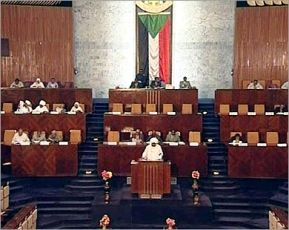Sudanese parliament says South Sudan “biggest security threat”
December 26, 2011 (KHARTOUM) – The Sudanese parliament has branded the newly independent state of South Sudan as the main security threat to Khartoum, citing Juba’s alleged support to rebels seeking to topple the government.

The three hour meeting, which was devoted to discussing the security situation in the country, said that the designation was warranted by Juba’s support of the Sudanese Revolutionary Forces (SRF), an alliance of Sudanese armed groups seeking to topple the government.
South Sudan seceded from Sudan in July this year under a 2005 peace deal that ended nearly half a century of intermittent civil wars between the two sides.
The recently separated countries often exchange accusations of supporting rebels on each others’ territories, with Khartoum saying Juba is backing the rebellion of its erstwhile allies in Sudan’s border regions of South Kordofan and Blue Nile while Juba accuses Khartoum of supporting southern rebel groups.
Following the meeting, the parliament’s speaker Ahmed Ibrahim al-Tahir told reporters that a report produced by an emergency parliamentary committee tasked with assessing the security situation in the country had concluded that “the biggest security threats are represented in the South Sudanese state, Kauda alliance [an alias of the RSF] and some rebel groups in Darfur.”
Sources told Sudan Tribune that the parliament’s security and defense committee was intending to question the two ministers and the intelligence chief about the deteriorating security situation in north Darfur and north Kordofan state following the attacks launched this week by the Darfur rebel Justice and Equality Movement (JEM) in those areas but the killing of JEM’s leader Khalil Ibrahim forced the committee to revise its agendas.
The meeting also hailed the killing of Ibrahim as a “great victory” and congratulated the security apparatus’s efforts which salvaged the situation in hotspots.
In a related context, the parliament’s speaker revealed that the legislative body in corroboration with the federal Ministry of Justice is intending to draft an anti-espionage law.
Al-Tahir further said that the proposed law was demanded by security authorities in the country, adding that the parliament’s session in the upcoming period would be dedicated to deliberations on the bill in order to pass it.
(ST)
